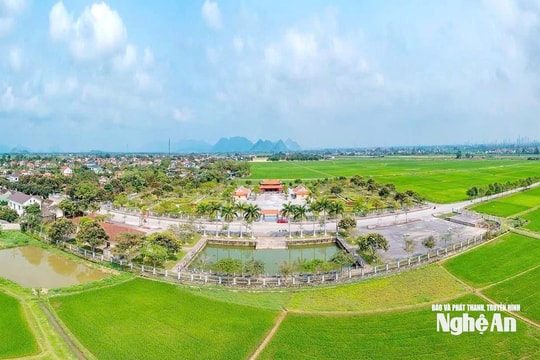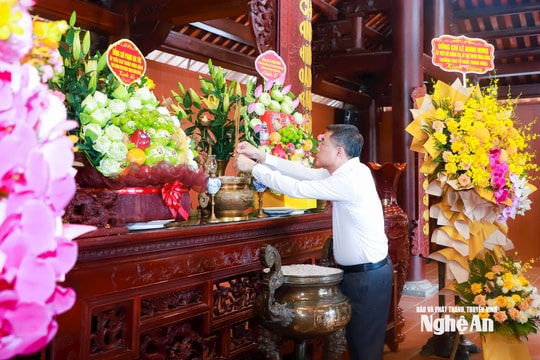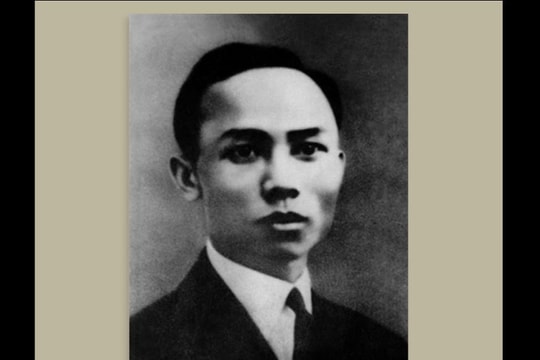'One belief in the glorious victory of the revolution'
(Baonghean.vn) - General Secretary Le Hong Phong (1902 - 1942), an outstanding leader of the Party, an outstanding son of the Vietnamese people and his hometown Nghe An, a staunch soldier of the international communist and workers' movement. He set a shining example of a communist: Living for the Party, dying without leaving the Party, sacrificing his whole life to strive for the independence and freedom of the nation, for the happiness of the people...
Childhood and the road to revolution
The land of Dong village, belonging to the old Thong Lang commune, now Hung Thong commune (Hung Nguyen) is only about 6 km from Vinh city. Hung Nguyen is famous for its fertility, but Thong Lang has arid land, the ancient people still passed down the saying"The banyan tree has three main branches and nine stalks/Whoever comes to Thong Lang will eat the corn stalks"And it was here, in 1902, that the boy Le Huy Doan (akaLe Hong Phong) cried out at birth...
Le Huy Doan was born into a family of Confucian scholars. His father was Mr. Le Huy Quan, the 12th generation descendant of the Le family in Nghe An. Many people in Mr. Le Huy Quan's family passed the imperial examinations. He was an educated man, but his path to imperial examinations was not fortunate. Le Huy Doan's mother was Mrs. Pham Thi Thu (often called Mrs. Sau). Mrs. Sau was from Hoa Nam commune (Nam Dan). She was famous in the area for her intelligence, modesty, and adherence to family rules and education.
Mr. and Mrs. Le Huy Quan gave birth to 2 boys and 3 girls. Le Huy Doan was the fourth child. From a young age, Le Huy Doan was handsome and tall. His parents created conditions for Le Huy Doan and his siblings to study. With his intelligence and love of learning, when he was young, Le Huy Doan studied Chinese characters at the village school. Later, he studied Vietnamese and French.
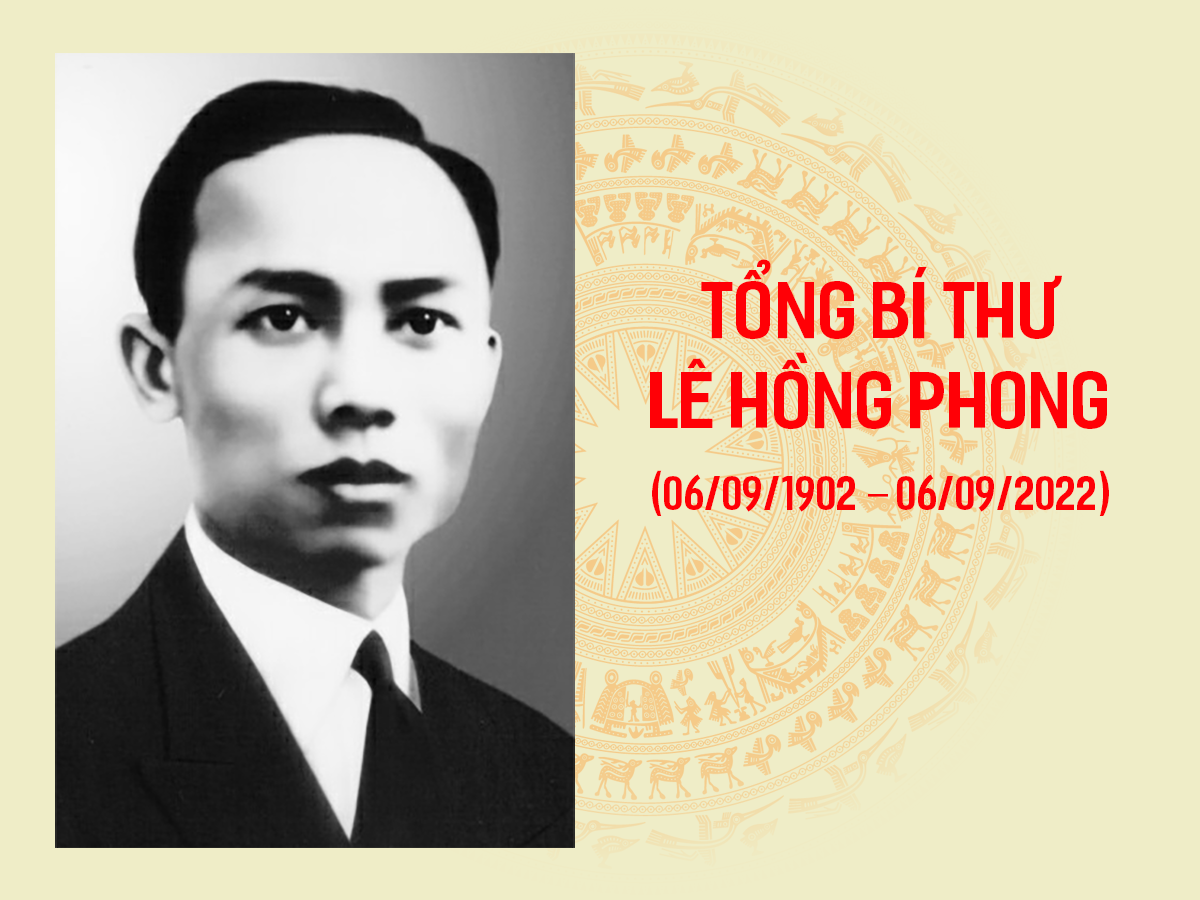 |
Portrait of the late General Secretary Le Hong Phong. Photo: Archive |
After graduating from the Elementary School in Vinh, Le Huy Doan could not continue his studies because his father - the main breadwinner of the family - passed away, while his old mother was sick and weak, and the family's circumstances were too difficult. Le Huy Doan went to work for a trading company in Vinh, then worked as a worker at the Ben Thuy Match Factory. During this time, Le Huy Doan became friends with Pham Thanh Khoi (aka Pham Hong Thai - an activist in the Dong Du Movement and the person who planted the bomb to assassinate the Governor General of Indochina Martial Merlin in 1924); the two became close friends and comrades on the revolutionary path later. At the end of 1923, because of actively mobilizing workers to fight for their rights and protest against the harsh policies of the employers, Pham Thanh Khoi and Le Huy Doan were fired by their employers.
In January 1924, under the recruitment and organization of Mr. Vuong Thuc Oanh, Phan Boi Chau's son-in-law, 15 young men, including Pham Thanh Khoi and Le Huy Doan, found their way to the Northeast of Thailand to participate in revolutionary activities. Le Huy Doan changed his name to Le Hong Phong, Pham Thanh Khoi changed his name to Pham Hong Thai. After a period of staying at Dang Thuc Hua's Farm in Phichit (Thailand), the two were selected to go to Guangzhou (China).
In Guangzhou, April 1924, Le Hong Phong and Pham Hong Thai were admitted to Tam Tam Xa - an organization that gathered patriotic Vietnamese youth. On June 19, 1924, when the Governor General of Indochina, Merlin, on his way to Japan, stopped by Guangzhou to attend a party in Sa Dien, Pham Hong Thai was assigned to assassinate this notorious colonialist. Le Hong Phong and Le Hong Son were assigned to support Pham Hong Thai. The mission failed, and Pham Hong Thai died.
Became a member of the Communist Party of China and the Communist Party of the Soviet Union
In the second half of 1924, Le Hong Phong entered the Whampoa Military Academy. In November 1924, leader Nguyen Ai Quoc came to Guangzhou from the Soviet Union. Around December 1924, Le Hong Phong met leader Nguyen Ai Quoc, and from here, under his guidance and training, Le Hong Phong became an elite revolutionary cadre, a staunch international communist soldier. In February 1925, Nguyen Ai Quoc selected Le Hong Phong and a number of elite youths to form the Communist Youth Union, which later became the core to establishVietnam Revolutionary Youth Association- the predecessor organization of the Communist Party of Vietnam.
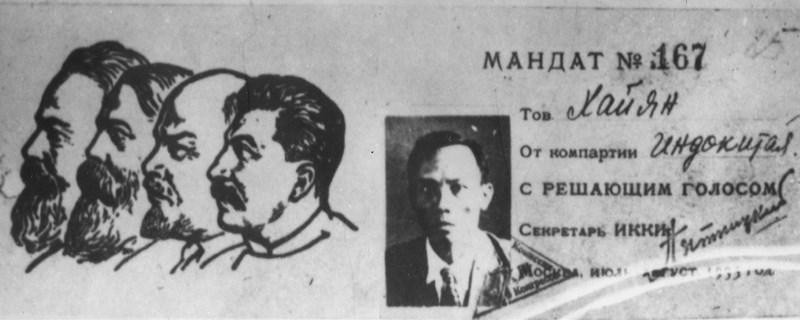 |
Delegate card of the 7th Congress of the Communist International of comrade Le Hong Phong. Photo: Document |
In December 1925, after graduating from the Whampoa Military Academy, Le Hong Phong entered the Guangzhou Aviation School. Due to his efforts in studying and training at the school, Le Hong Phong was admitted to the Communist Party of China.
To train military cadres for the future revolutionary cause, Nguyen Ai Quoc recommended Le Hong Phong to the Soviet Union for training at the Air Force Military Theory School in Leningrad in October 1926. In December 1927, Le Hong Phong transferred to study at the Military Pilot Training School No. 2 in the city of Borisglevsk, the course ending in November 1928. According to the plan, Le Hong Phong would continue to study as a pilot, but at this time the Indochina revolution needed a more professional revolutionary than a fighter pilot, so the Communist International decided to transfer comrade Le Hong Phong to long-term, systematic theoretical training at the Oriental University. Here, comrade Le Hong Phong revealed the excellent, exemplary qualities of a communist, so on May 25, 1929, Le Hong Phong was admitted to the Communist Party of the Soviet Union.
Before our Party was founded, Le Hong Phong was a member of the Communist Party of China and the Communist Party of the Soviet Union. After graduating from a 3-year course in May 1931, comrade Le Hong Phong continued to do research at the Oriental University.
Holding the responsibility of restoring the Party organization system
After the climax of the Nghe-Tinh Soviet movement in 1930-1931, the revolutionary movement in the country was brutally suppressed by the French colonialists and their lackeys. Many Party organizations were broken, many Party members were arrested and imprisoned. Most of the Party's key comrades fell into the hands of the enemy, were imprisoned, tortured, and killed. Abroad, on June 6, 1931, leader Nguyen Ai Quoc was arrested in Hong Kong, comrades: Ho Tung Mau, Truong Van Linh, Nguyen Thi Minh Khai, Le Hong Son... were also arrested.
Faced with the losses and difficulties of the Indochina revolution, in November 1931, the Communist International decided to send comrade Le Hong Phong back to the country to direct the restoration of the Party organization system and the revolutionary movement in Vietnam and Indochina.
At the end of 1931, Le Hong Phong went from the Soviet Union to France, to Nanjing (China), Indonesia, Singapore, and then to Bangkok (Thailand) with the intention of going to Dang Thuc Hua's Farm in Phichit (Thailand) to make contact. While he was not yet able to return to Vietnam, in March 1932, he was accepted to study at Guangzhou University. In July 1933, he returned to Cao Bang to learn about the situation, made contact with the revolutionary base there, and then returned to Nanning.
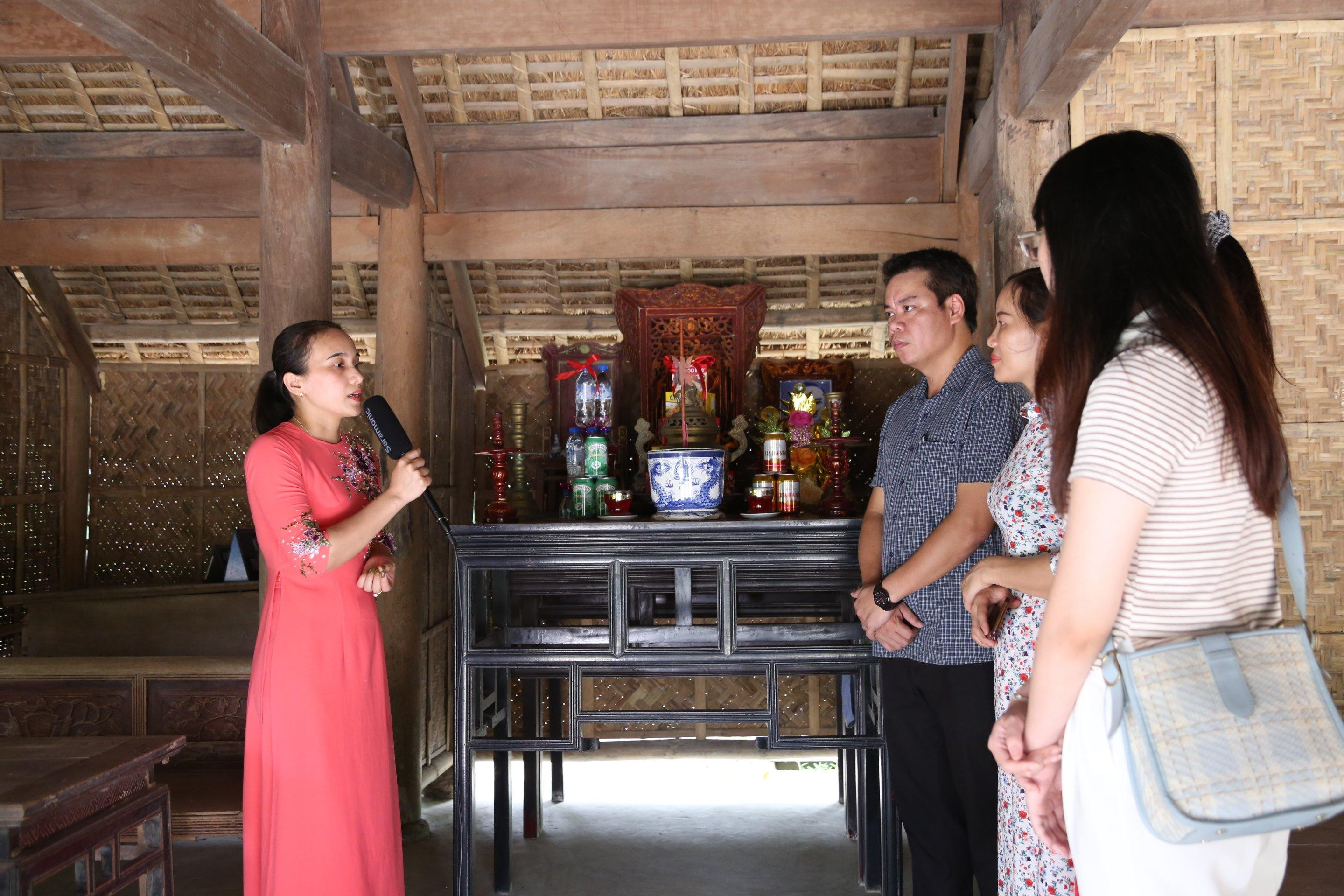 |
The narrator introduces the life and career of the late General Secretary Le Hong Phong. Photo: Dao Tuan |
In March 1934, comrade Le Hong Phong went to Macau (China) with comrades Ha Huy Tap and Nguyen Van Dut to discuss the plan to establish an external Party Command Committee to unify the leadership of Party organizations, moving towards reorganizing the Party's Central agency. At this conference, comrade Le Hong Phong was appointed as Secretary of the external Command Committee, comrade Ha Huy Tap as Editor-in-Chief of the Bolshevik Magazine, in charge of propaganda and agitation, comrade Nguyen Van Dut in charge of inspection.
In June 1934, comrade Le Hong Phong convened and chaired a conference of Party organization delegates from within the country to meet with the Party's overseas Command Committee. After this important meeting, at the call of the Communist International, the overseas Command Committee sent comrades Le Hong Phong, Nguyen Thi Minh Khai and Hoang Van Non, led by comrade Le Hong Phong, to attend the 7th Congress of the Communist International in Moscow, at the Oriental University. The delegation met with leader Nguyen Ai Quoc on December 10, 1934.
While the delegation was in Moscow, from March 27 to 31, 1935, in Macau (China), the First Congress of the Party was convened. The Congress elected comrade Le Hong Phong as General Secretary (General Secretary) of the Party. The Congress also approved the overseas Command Committee to send a delegation of our Party to attend the Seventh Congress of the Communist International and appointed additional comrades: Nguyen Ai Quoc (currently in Moscow), Pham Van Xo, and Nguyen Chanh Nhi to join the delegation.
At the 7th Congress of the Communist International, comrade Le Hong Phong was elected to the Presidium of the Congress, was elected by the Congress as an official member of the Executive Committee of the Communist International and had many active activities contributing to the success of the Congress.
In July 1936, comrade Le Hong Phong returned to Shanghai, convened and chaired a conference with comrades in the overseas Command Committee to discuss the Party's organizational work and the struggle line in the new situation after the 7th Congress of the Communist International. The conference resolved to elect comrade Ha Huy Tap as Secretary of the overseas Command Committee of the Party to replace comrade Le Hong Phong.
On October 12, 1936, in Cochinchina, the Party Central Committee was reorganized.
On March 13 and 14, 1937, the Conference of Cadres in the three terms elected the Central Executive Committee consisting of 11 members. Comrade Le Hong Phong and Comrade Phung Chi Kien were assigned by the Central Executive Committee to stay abroad so that they could return to the country to supplement the Party's organizations and at the same time maintain contact with the Communist International.
At the end of October 1937, comrade Le Hong Phong returned to Saigon - Cho Lon to discuss with the Central Executive Committee how to lead the revolutionary movement in the country to suit the new situation.
At the end of March 1938, in Ba Diem, Hoc Mon, Gia Dinh, the Party Central Committee Conference met to decide on a new line of struggle and the work of Party organization and building. The Conference elected a new Central Executive Committee consisting of 11 members, a Standing Committee consisting of 5 comrades: Nguyen Van Cu, Ha Huy Tap, Le Hong Phong, Vo Van Tan, Nguyen Chi Dieu, with comrade Nguyen Van Cu as General Secretary.
On June 22, 1939, comrade Le Hong Phong fell into the hands of the enemy and was sentenced by the Saigon Criminal Court to 6 months in prison and 3 years of residence ban in Cochinchina. After his prison term ended on December 23, 1939, comrade Le Hong Phong was released but was expelled from Cochinchina and escorted back to his hometown.
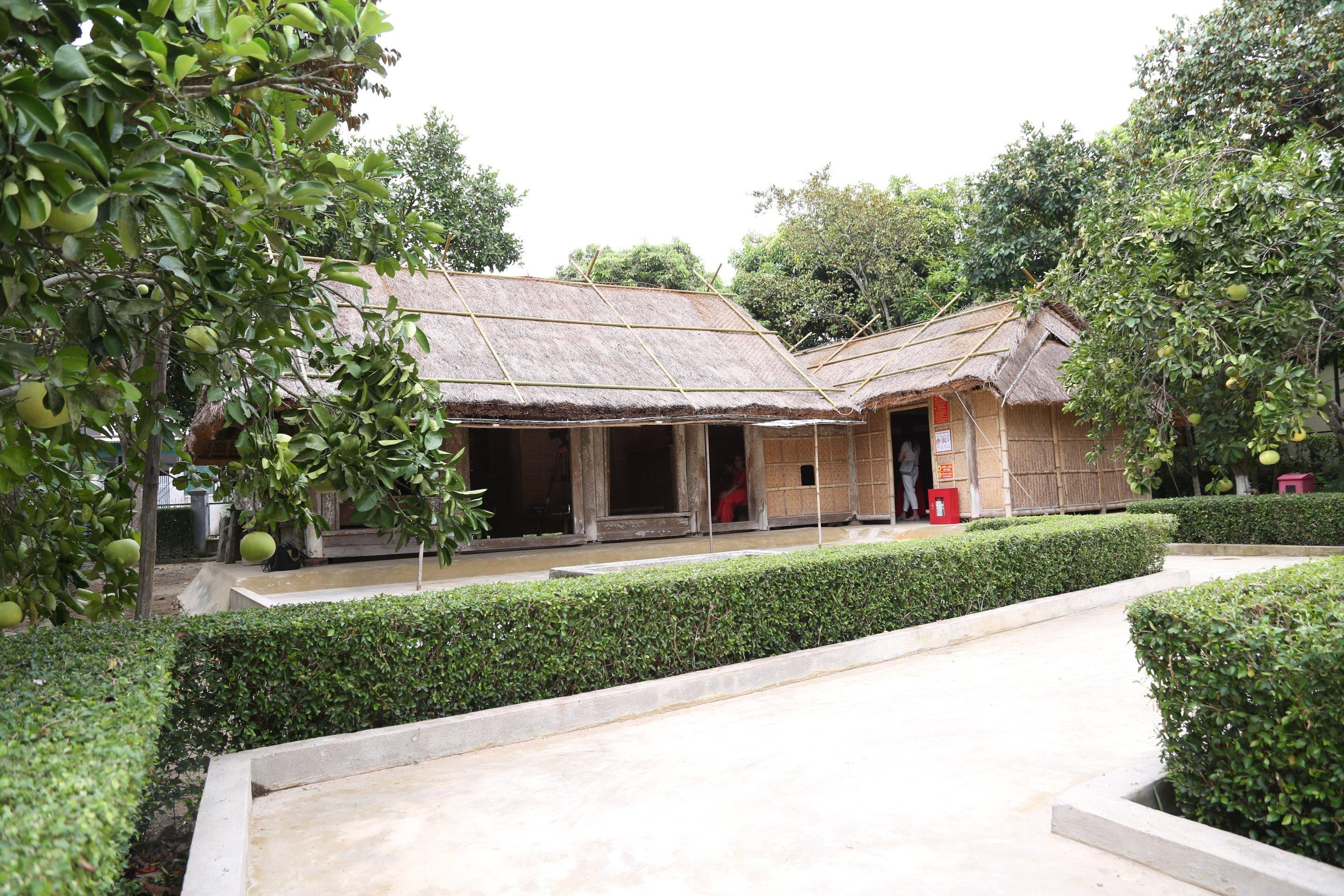 |
The house in Dong village, Hung Thong commune (Hung Nguyen), where General Secretary Le Hong Phong was born. Photo: Dao Tuan |
"Spending my blood and bones to water the revolutionary tree"
In early 1940, although he was under house arrest in his homeland, in order to limit his activities and influence, the French Court convicted him of "subversive activities" and extradited him to Saigon. On October 22, 1940, the Saigon High Court sentenced him to 5 years in prison, losing his civil and political rights, and banning him from staying for 10 years. At the end of 1940, after a period of detention in Saigon, the enemy exiled him to Con Dao Prison. He and the communist soldiers in prison continued to fight, maintaining their integrity in the face of the enemy's brutal torture.
Exhausted by months of imprisonment and torture in prison, comrade Le Hong Phong sacrificed his life on September 6, 1942, at the age of 40. Before his death, he told his fellow prisoners: "Please tell the Party that, until the last moment, Le Hong Phong still believed in the glorious victory of the revolution."
Comrade Le Hong Phong is a shining example of revolutionary morality, upholding the communist ideal, determined to fight for the Party and the revolution all his life, having absolute faith in the spirit, strength and intelligence of the masses, knowing how to rely on the people to lead the revolution through dangerous steps. Despite hardships and challenges, even before death, he still firmly believed in the final victory of the revolution. With his outstanding contributions, Comrade Le Hong Phong left many valuable lessons for communists and generations of Vietnamese people today and tomorrow.
Evaluating the talented, steadfast and indomitable cadres during the Party building period, President Ho Chi Minh affirmed: “Our comrades such as comrade Tran Phu, comrade Ngo Gia Tu, comrade Le Hong Phong, comrade Nguyen Thi Minh Khai, comrade Ha Huy Tap, comrade Nguyen Van Cu, comrade Hoang Van Thu, and hundreds of thousands of other comrades put the interests of the Party, the revolution, the class, and the nation above all else. Those comrades had deep and firm faith in the great force and glorious future of the class and the nation. Those comrades were happy to sacrifice everything, even their lives, for the Party, for the class, for the nation. Those comrades watered the revolutionary tree with their blood and bones, so the revolutionary tree has blossomed and borne fruit beautifully as it does today.”

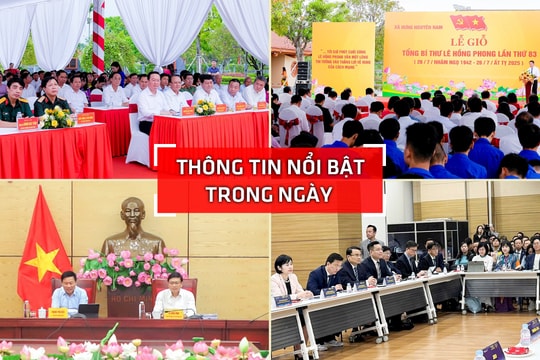
.jpg)

.jpg)
